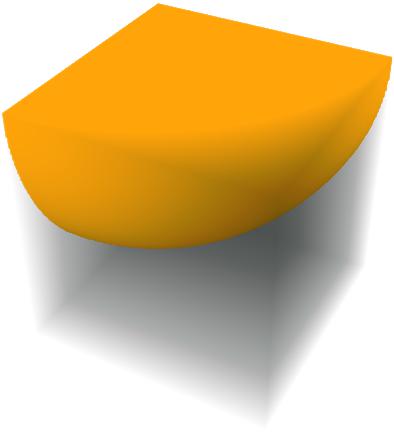Suppose we have a number list a:
n = 1000000;
a = RandomReal[{0, 1}, {n}];
We want to generate a list c with the same dimension of a and the relationship between the elements of a and c is:
$c[[i]] == 2 a[[i]] +3$
I think there will be no doubt that the best way to get this c is:
c = 2 a + 3
However, what if c is a "piecewise" list i.e. elements in different part of c are generated by different formula? For example, n/2 of the elements right in the middle of c are 0. while others still follow the formula above.
The most direct way I can think out is:
c1 = Table[If[n/4 + 1 <= i <= 3 n/4, 0., 2 a[[i]] + 3 ], {i, n}]; // AbsoluteTiming
{7.7380000, Null}
It's simple, but too slow.
While these 2 approaches are fast:
(c2 = 2 a + 3 ;
c2[[n/4 + 1 ;; 3 n/4]] = ConstantArray[0., {n/2}];) // AbsoluteTiming
(c3 = ConstantArray[0., {n}];
c3[[1 ;; n/4]] = 2 a[[1 ;; n/4]] + 3 ;
c3[[3 n/4 + 1 ;; -1]] = 2 a[[3 n/4 + 1 ;; -1]] + 3;) // AbsoluteTiming
{0.0760000, Null}
{0.0580000, Null}
But they are so dirty… And things will be worse when the dimension of the list becomes higher:
n=100;
b = RandomReal[{0, 1}, {n, n, n}]
d1 = Table[
If[n/4 + 1 <= i <= 3 n/4 && n/4 + 1 <= j <= 3 n/4 &&
n/4 + 1 <= k <= 3 n/4, 0., 2 b[[i, j, k]] + 3 ], {i, n}, {j,
n}, {k, n}]; // AbsoluteTiming
(d3 = ConstantArray[0., {n, n, n}];
d3[[1 ;; n/4]] = 2 b[[1 ;; n/4]] + 3;
d3[[3 n/4 + 1 ;; -1]] = 2 b[[3 n/4 + 1 ;; -1]] + 3;
d3[[n/4 + 1 ;; 3 n/4, 1 ;; n/4]] =
2 b[[n/4 + 1 ;; 3 n/4, 1 ;; n/4]] + 3;
d3[[n/4 + 1 ;; 3 n/4, 3 n/4 + 1 ;; -1]] =
2 b[[n/4 + 1 ;; 3 n/4, 3 n/4 + 1 ;; -1]] + 3;
d3[[n/4 + 1 ;; 3 n/4, n/4 + 1 ;; 3 n/4, 1 ;; n/4]] =
2 b[[n/4 + 1 ;; 3 n/4, n/4 + 1 ;; 3 n/4, 1 ;; n/4]] + 3;
d3[[n/4 + 1 ;; 3 n/4, n/4 + 1 ;; 3 n/4, 3 n/4 + 1 ;; -1]] =
2 b[[n/4 + 1 ;; 3 n/4, n/4 + 1 ;; 3 n/4, 3 n/4 + 1 ;; -1]] + 3;); // AbsoluteTiming
{12.8440000, Null}
{0.0930000, Null}
And a nightmare when the region are irregular:
f1 = Table[If[i^2 + j^2 + k^2 <= n^2, 0., 2 b[[i, j, k]] + 3 ],
{i, n}, {j, n}, {k, n}]; // AbsoluteTiming
{7.4530000, Null}
A fast f3 with the method shown in c3 and d3 is of course possible, but I'd like to skip it now.
So my question is, as the title said, is there an approach that's both elegant as c1 and fast as c3? Or at least not that slow as c1 and not that dirty as c3? Or, I can't have my cake and eat it too?
Well, to be honest, I knew that Compile together with Module can somewhat help (thanks for the help of @chyaong!):
c11 = Compile[{}, Module[{a = a, n = n},
Table[If[n/4 + 1 <= i <= 3 n/4, 0., 2 a[[i]] + 3], {i, n}]]][]; // AbsoluteTiming
{0.3590000, Null}
But I still look forward to a better solution: maybe a little greed?
I'd like to point out that, though I chose "$f(a)$ and $0$" to generate list in the example above for the sake of simplicity, this question is more general, the generated list may be formed by "$f(a)$ and $g(a)$", or even by "$f(a1,a2)$ and $g(a1,a2)$". Still, I appreciated and will appreciate those answers that focus on special cases since the "$f(a)$ and $0$" cases are simple but also common.
I added the tag "difference-equations" because this question generated when exploring finite difference method (FDM). I believe it's a inevitable issue when programming FDM.
Here are two existed post that can be optimized or answered with the outcome of this discussion:


0orf(a)or it is more general question? $\endgroup$Ccompiler installed you can get better speed up by calling that compiler. See my updated answer. $\endgroup$c2[[n/4 + 1 ;; 3 n/4]] = 0.is OK, no needConstantArray[0., {n/2}]. $\endgroup$